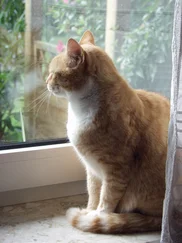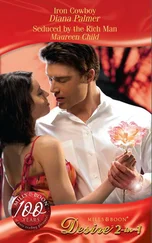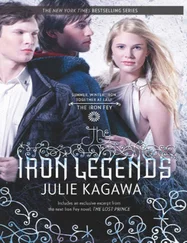Up Boyes Drive the car was labouring now, willing but old, like Rocinante. I gripped the wheel tighter, urging her on.
Above Muizenberg, overlooking the sweep of False Bay, I parked and switched off the engine. The dog began to whine. We let it out. It sniffed the curbstones, sniffed the bushes, relieved itself, while we watched in awkward silence.
He spoke. 'You are pointing the wrong way,' he said. 'You should be pointing downhill.'
I hid my chagrin, I have always wished to be thought a capable person. Now more than ever, with incapability looming,
'Are you from the Cape?' I said.
'Yes.'
'And have you lived here all your life?'
He shifted restlessly. Two questions: one too many.
A breaker, perfectly straight, hundreds of yards long, foiled inshore, a single crouched figure on a surfboard gliding ahead of it. Across the bay the mountains of Hottentots Holland stood out clear and blue. Hunger, I thought: it is a hunger of the eyes that I feel, such hunger that I am loth even to blink. These seas, these mountains: I want to burn them upon my sight so deeply that, no matter where I go, they will always be before me. I am hungry with love of this world.
A flock of sparrows settled on the bushes around us, preened themselves, took off again. The surfer reached shore and began to trudge up the beach. Suddenly there were tears in my eyes. From not blinking, I told myself. But the truth was, I was crying. Hunched over the wheel, I abandoned myself, first to a quiet, decent sobbing, then to long wails without articulation, emptyings of the lungs, emptyings of the heart. 'I am so sorry,' I gasped; and then, when I was calmer: 'I am sorry, I don't know what has come over me.'
I should not have bothered to apologize. He gave no sign of having noticed anything.
I dried my eyes, blew my nose. 'Shall we go?' I said.
He opened the door, gave a long whistle. The dog bounded in. An obedient dog, no doubt stolen from a good family.
The car was indeed pointing the wrong way.
'Start in reverse,' he said.
I released the handbrake, rolled back down the hill a little way, let out the clutch. The car shuddered and stopped. 'It has never started in reverse,' I said.
'Swing over to the other side of the road,' he directed, like a husband giving a driving lesson.
I let the car roll further downhill, then swung across the road. With blaring horn a great white Mercedes shot past on the inside. 'I didn't see it!' I gasped.
'Go!' he shouted.
I stared in astonishment at this stranger shouting at me. 'Go!' he shouted again, straight into my face.
The engine caught. I drove back in stiff silence. At the corner of Mill Street he asked to be let off.
The worst of the smell comes from, his shoes and feet. He needs socks. He needs new shoes. He needs a bath. He needs a bath every day; he needs clean underwear; he needs a bed, he needs a roof over his head, he needs three meals a day, he needs money in the bank. Too much to give: too much for someone who longs, if the truth be told, to creep into her own mother's lap and be comforted.
Late in the afternoon he returned. Making an effort to forget what had passed, I took him around the garden, pointing out tasks that need to be done. 'Pruning, for instance, ' I said. 'Do you know how to prune?'
He shook his head. No, he didn't know how to prune. Or didn't want to.
In the bottom corner, the most heavily overgrown, thick creepers covered the old oak bench and the rabbit-hutch. 'This should all be cleared,' I said.
He lifted one edge of the mat of creepers. On the floor of the hutch was a jumble of parched bones, including the perfect skeleton of a young rabbit, its neck arched back in a last contortion.
'Rabbits,' I said. 'They used to belong to my domestic's son. I let him keep them here as pets. Then there was some commotion or other in his life. He forgot about them and they starved to death. I was in hospital and didn't know about it. I was terribly upset when I came back and found out what agony had been going on unheeded at the bottom of the garden. Creatures that can't talk, that can't even cry.'
Guavas were dropping, worm-riddled, making a malodorous pulpy carpet under the tree. 'I wish the trees would stop bearing,' I said. 'But they never do. '
The dog, following behind, sniffed perfunctorily at the hutch. The dead long dead, their smells all gone.
'Anyhow, do what you can to bring it back under control, I said. 'So that it doesn't become a complete wilderness.'
'Why?' he said.
'Because that is how I am,' I said. 'Because I don't mean to leave a mess behind.'
He shrugged, smiling to himself.
'If you want to be paid you will have to earn it,' I said. 'I am not giving you money for nothing.'
For the rest of the afternoon he worked, hacking away at the creepers and grass, pausing now and again, to stare into the distance, pretending not to be aware that I was keeping an eye on him from upstairs. At five o'clock I paid him. 'I know you are not a gardener,' I said, 'and I don't want to turn you into what you are not. But we can't proceed on a basis of charity.'
Taking the notes, folding them, putting them in his pocket, looking off to one side so as not to look at me, he said softly, 'Why?'
'Because you don't deserve it. '
And he, smiling, keeping his smile to himself: 'Deserve… Who deserves anything?'
Who deserves anything? In a quick fury I thrust the purse at him. 'What do you believe in, then? Taking? Taking what you want? Go on: take!'
Calmly he took the purse, emptied it of thirty rand and some coins, and handed it back. Then off he went, the dog jauntily at his heels. In half an hour he was back; I heard the clink of bottles.
Somewhere he has found himself a mattress, one of those folding mattresses people take to the beach. In his little nest amid the dust and mess of the woodshed, with a candle at his head and the dog at his feet, he lay smoking.
'I want that money back,' I said.
He reached into his pocket and held out some notes. I took them. Not all the money, but that did not matter.
'If you are in need, you can ask,' I said. 'I am not a stingy person. And be careful with that candle. I don't want a fire.'
I turned, and went. But in a minute was back.
'You told me,' I said, 'that I should turn this house into a boarding-house for students. Well, there are better things I could do with it. I could turn it into a haven for beggars. I could run a soup-kitchen and a dormitory. But I don't. Why not? Because the spirit of charity has perished in this country. Because those who accept charity despise it, while those who give give with a despairing heart. What is the point of charity when it does not go from heart to heart? What do you think charity is? Soup? Money? Charity: from the Latin word for the heart. It is as hard to receive as to give. It takes as much effort. I wish you would learn that. I wish you would learn something instead of just lying around.'
A lie: charity, caritas, has nothing to do with the heart. But what does it matter if my sermons rest on false etymologies?
He barely listens when I speak to him. Perhaps, despite those keen bird-eyes, he is more befuddled with drink than I know.
Or perhaps, finally, he does not care. Care: the true root of charity. I look for him to care, and he does not. Because he is beyond caring. Beyond caring and beyond care.
Since life in this country is so much like life aboard a sinking ship, one of those old-time liners with a lugubrious, drunken captain and a surly crew and leaky lifeboats, I keep the shortwave radio at my bedside. Most of the time there is only talk to be heard; but if one persists into the unlikely hours of the night there are stations that relent and play music. Fading in, fading out, I heard last night – from where? Helsinki? the Cook Islands? – anthems of all the nations, celestial music, music that left us years ago and now comes back from the stars transfigured, gentle, as evidence that all that is given forth will at length return. A closed universe, curved like an egg, enclosing us.
Читать дальше












